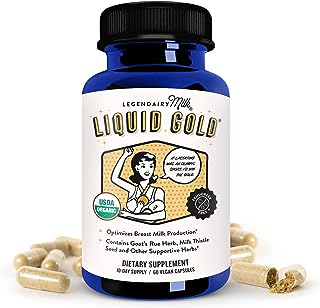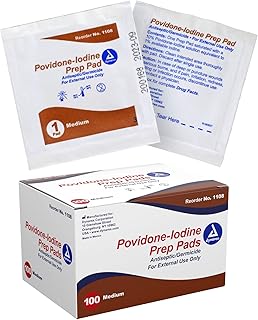5 important factors worth considering when looking for the best meds to lower cholesterol
When deciding on cholesterol-lowering medications, it’s important to consider factors like how well it works, any side effects, cost, and convenience. By thinking about these things, individuals can choose the right medication that is best for their health and lifestyle. This will help them feel more confident and clear about their decision, leading to better health and well-being.
See our guide to the best meds to lower cholesterol.
Effectiveness in lowering cholesterol levels
Managing cholesterol levels can be overwhelming with the variety of cholesterol-lowering medications available. While these medications are effective for many people, it’s important to also focus on overall health along with taking medication. Lifestyle changes are crucial for long-term maintenance, and finding a balance between medication and lifestyle modifications can lead to better outcomes in managing cholesterol levels.
It’s important not to rely solely on medications for better health. Regular physical activity, a heart-healthy diet full of fruits, vegetables, and whole grains, and maintaining a healthy weight can supplement the benefits of cholesterol-lowering medications. By combining medication with lifestyle changes, individuals can improve the effectiveness of lowering cholesterol levels and promote overall well-being. Optimal health is more than just reducing numbers on a chart; it’s about taking a balanced approach that cares for both the body and mind.
Potential side effects and risks
When you’re thinking about buying medications to lower cholesterol, it’s important to know about the possible side effects and risks that can come with these drugs. While these medications can help with cholesterol levels, they can also have some health risks that you should pay attention to.
Common side effects of cholesterol-lowering medications may include muscle pain, liver damage, digestive issues, and an increased risk of getting type 2 diabetes. In addition, just relying on medications to lower cholesterol might make you forget about making healthy lifestyle changes such as eating well and exercising regularly.
It’s important to look at managing cholesterol in a complete way, by thinking about both medication and lifestyle changes. Finding a balance between using medication and adjusting your lifestyle is key to getting the best cholesterol levels while reducing potential risks and side effects. Ultimately, it’s crucial to have an informed and balanced approach that fits your individual needs when managing cholesterol effectively.
Dosage and frequency of medication
When buying medication to lower cholesterol, it’s important to know the right amount and how often to take it so you can stay healthy. Taking too much medication won’t make your cholesterol go down faster and could actually cause problems for your body. That’s why it’s crucial to talk to a healthcare professional to figure out the best dose and schedule for you. By following their advice, you can get good results without hurting yourself.
Being consistent is really important when you’re taking cholesterol-lowering medication. Creating a routine and sticking to it closely can make a big difference in how well the treatment works. If you skip doses or change how often you take the medication without talking to a professional, it could throw off your body’s balance and stop the medication from working like it should. Remember, the medication is meant to work slowly and steadily over time to lower your cholesterol safely. By sticking to the dose and schedule your doctor gives you, you’re putting your health first and making sure the treatment is as effective as possible.
Interactions with other medications or health conditions
When buying medications to lower cholesterol, it’s important to be aware of possible interactions with other medications or health conditions. Knowing how different drugs can interact with each other or with underlying health issues is key to staying healthy.
Before starting a new cholesterol-lowering medication, it’s crucial to talk to a healthcare provider or pharmacist. They can give you important information about the risks and benefits based on your medical history.
Not considering potential interactions can cause problems like side effects or the medication not working well. Your healthcare provider can help you avoid issues by adjusting dosages, suggesting different medications, or recommending lifestyle changes.
By being proactive about understanding and managing interactions, you can protect your health and keep your cholesterol levels in check. Remember, knowledge is power, especially when it comes to cholesterol medications. Stay informed and seek professional advice to make sure your treatment plan is optimized.
Cost and insurance coverage
When you need to buy medication for high cholesterol, it can be tough to balance your health needs with your budget. Prices for prescription drugs keep going up, and it’s hard to figure out what your insurance will cover and how much you’ll have to pay out of pocket. Sometimes, you might have to choose between taking care of your health and keeping your finances in check because the cost of medication is so high. The lack of clear information about prices and insurance coverage makes it even more difficult for people who need these medications to stay healthy.
As healthcare costs keep rising, it’s really important to make sure that the prices of cholesterol-lowering medications and what insurance covers are easy to understand. Everyone should be able to afford these important medications, not just a few people who can afford it. By pushing for changes in policies that make healthcare more affordable and ensure that insurance covers cholesterol medications, we can make sure that no one has to compromise their health because they can’t afford it. We need to work together to create a healthcare system that focuses on making sure everyone can afford and access the care they need to stay healthy without struggling financially.
Conclusion
In conclusion, taking medications to lower cholesterol can help manage heart health. But it’s important to use them as part of a complete treatment plan that includes lifestyle changes. By using medication along with healthy eating, exercise, and stress relief, people can work towards better heart health. It’s important to work closely with healthcare providers to find the best balance for long-term health. Remember, using a holistic approach is important for lasting results and overall wellness. Want more info on clematis, check the best clematis.



